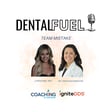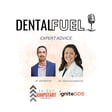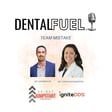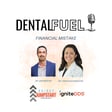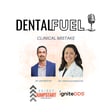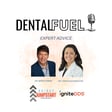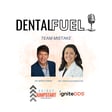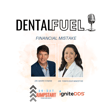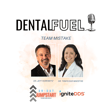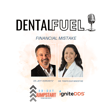
Dr. David Rice: Team Mistake
Is Everyone Smiling But You? Join Dr. David Rice and Tanya Sue Maestas on Dental Fuel as they explore the pitfalls of people-pleasing and unveil insights from Dr. Rice's new book! Discover strategies to establish clear expectations, foster accountability, and cultivate a supportive team culture in your dental practice. Don’t miss this enriching conversation to elevate your practice management skills!
About the Guest:
David Rice is the founder and CEO of Ignite DDS, an organization dedicated to helping dental students and young dentists navigate their careers with confidence and expertise. He is also a seasoned clinician with extensive experience in restorative and cosmetic dentistry. David practices part-time at East Amherst Dental Center in Buffalo, NY, where he initially started as an associate, then became an owner, and now returns occasionally. Apart from his clinical and teaching roles, David is a prominent educator, frequently collaborating with top dental education institutes like Pankey, Dawson, and Spear.
Episode Summary:
Welcome to an insightful episode featuring David Rice and Tanya Sue Maestas as they delve into the intricacies of building effective and positive team cultures within dental practices. Rice, a seasoned dentist and founder of IgniteDDS, shares his experiences and lessons learned throughout his journey, providing a deep dive into common challenges and strategic solutions in team building and practice management. This conversation is a must-listen for dental professionals eager to enhance their practice cultures and achieve higher levels of success.
In this episode, David Rice opens up about the pitfalls of being a people pleaser early in his career and the importance of establishing clear expectations and accountability within a team. Through personal anecdotes and professional insights, Rice emphasizes the need for strong vision, mentorship, and the willingness to make tough decisions for the betterment of the practice. The discussion also touches on the impact of toxic environments and methods to cultivate a supportive and thriving workplace. Tanya Sue Maestas complements the dialogue with her own experiences and strategies, making this episode a rich resource for dental practitioners.
Key Takeaways:
- The Importance of Clear Expectations: Establish defined roles and responsibilities to prevent being taken advantage of and to maintain control over your practice’s culture.
- Value of Consistent Team Meetings: Regular huddles and meetings, whether in the morning or at any suitable time, are crucial for maintaining team alignment and preparing for upcoming tasks.
- Handling Toxic Environments: Understand what drives each team member and foster open communication to manage and ideally eliminate toxicity within the workplace.
- Role of Mentorship: Having mentors and coaches can significantly aid in navigating the challenges of practice management and personal development within your profession.
- Building a Positive Culture: Create a supportive environment where every team member feels valued, understood, and is motivated to contribute positively.
Connect with Ignitedds and Dr. David Rice: @ignitedds
Connect with Tanya Sue Maestas: @tsmaestas.dds
Learn more about 90 Day JumpStart : https://ignitedds.com
